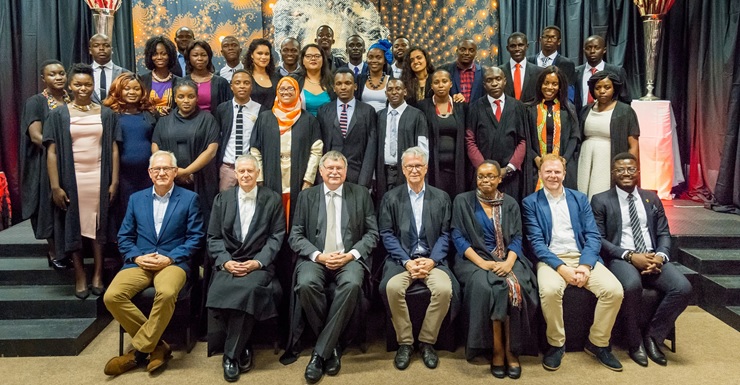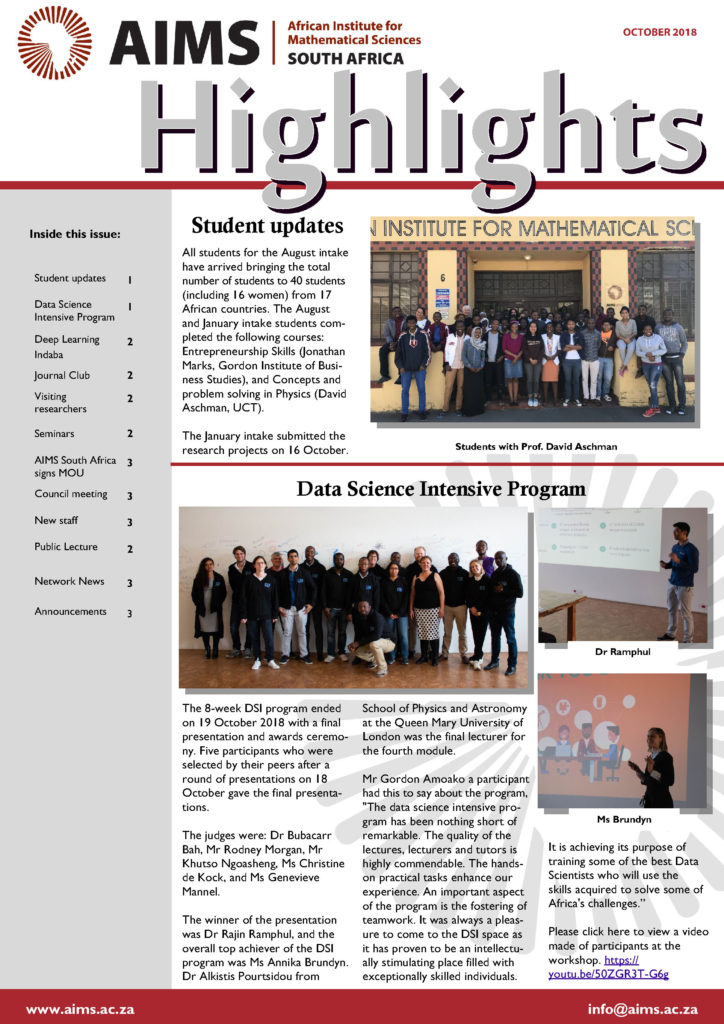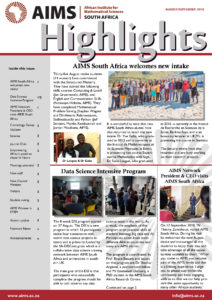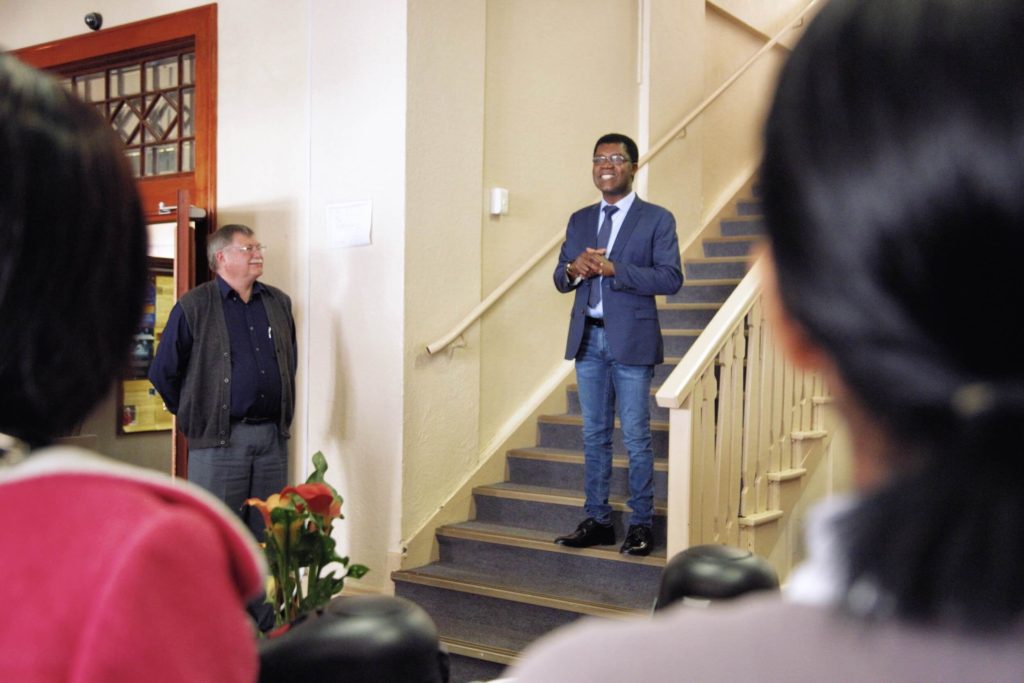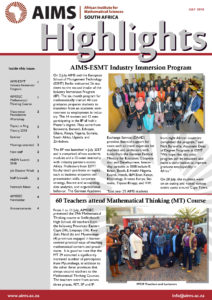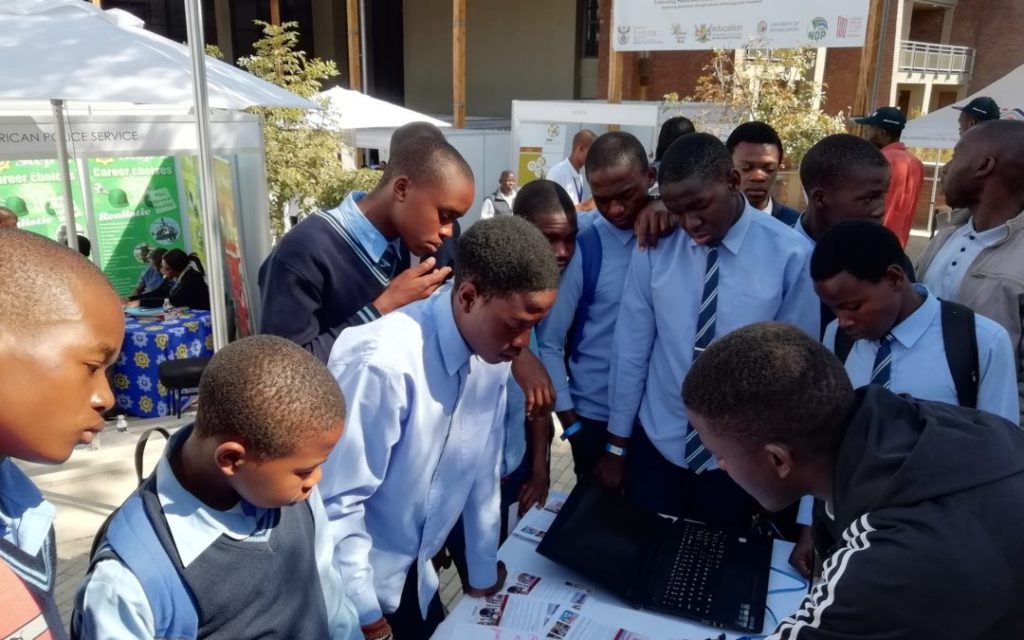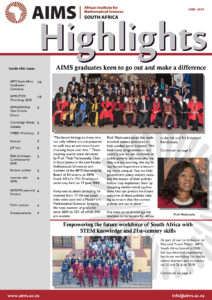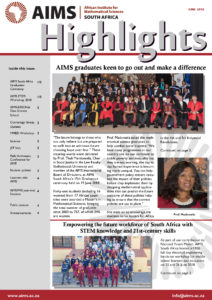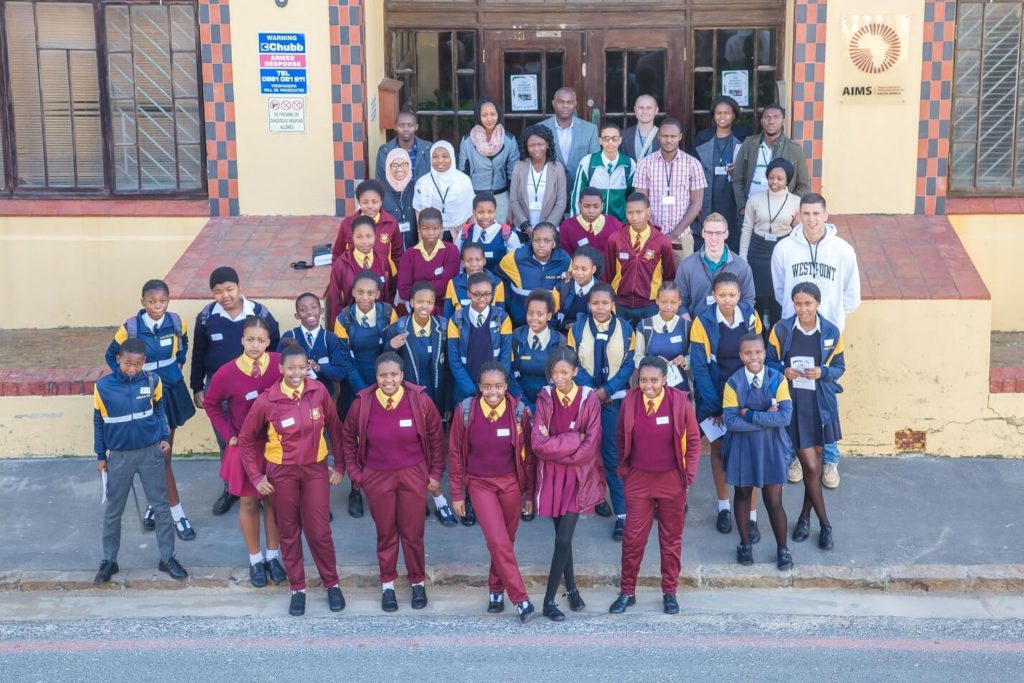Cape Town, 14 November 2018: AIMS South Africa acknowledged the success of its seventh group of January intake students as well as the second group of students who have successfully completed the AIMS-ESMT Industry Immersion Programme (IIP) at a special Recognition of Achievement Ceremony held at its centre in Muizenberg. Fifteen students (including 13 South Africans)
AIMS students will help to shape Africa’s future
